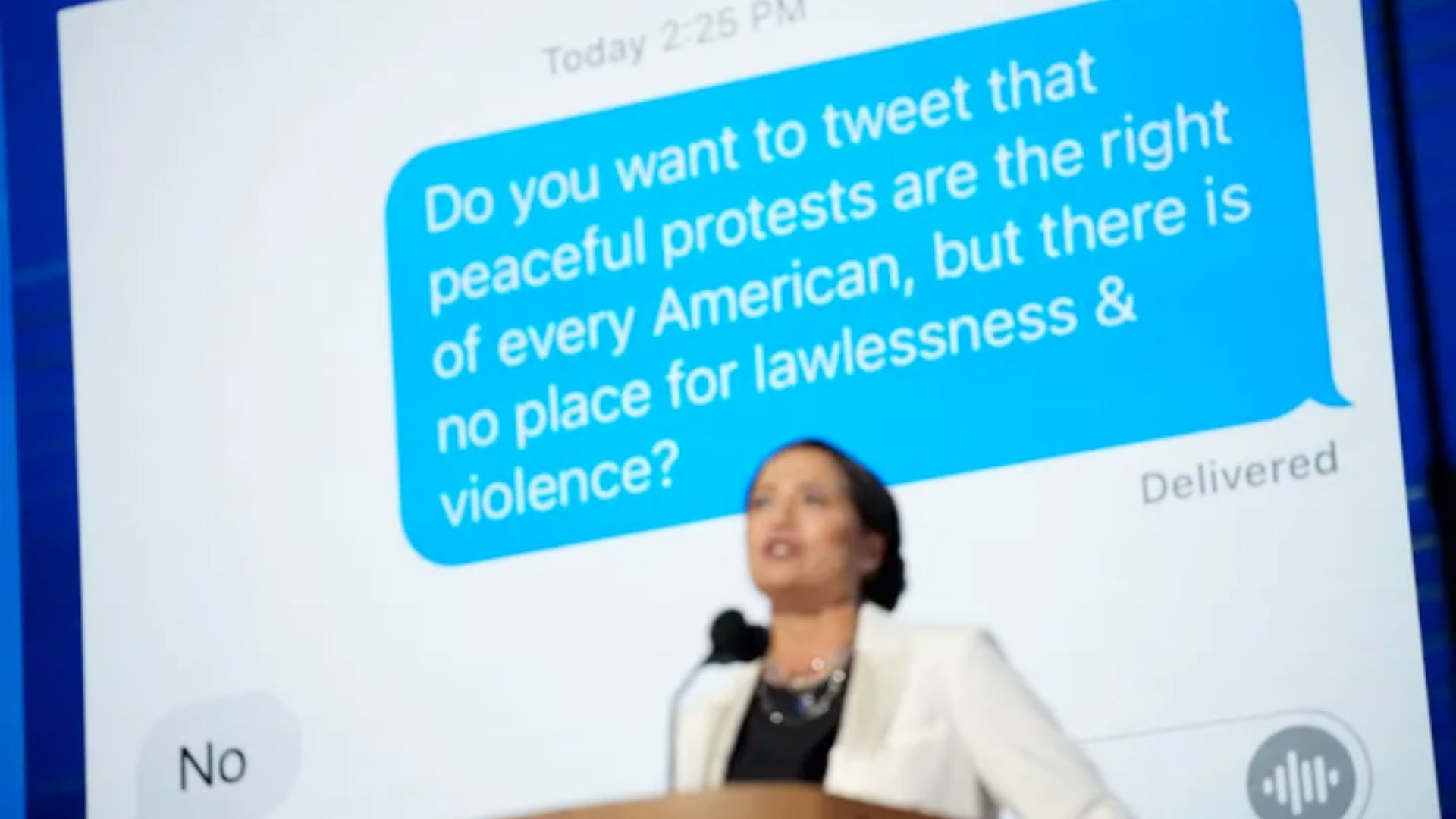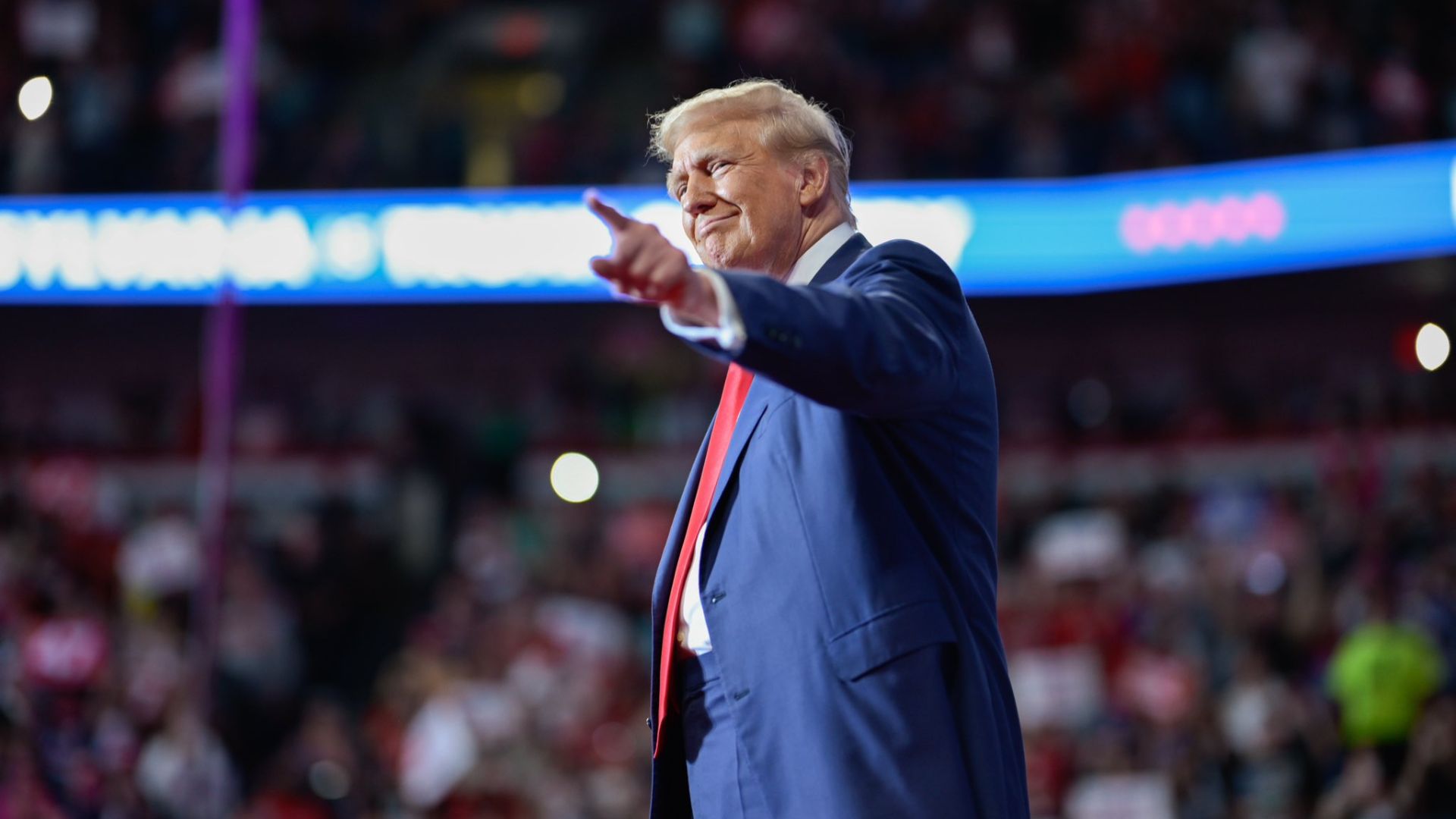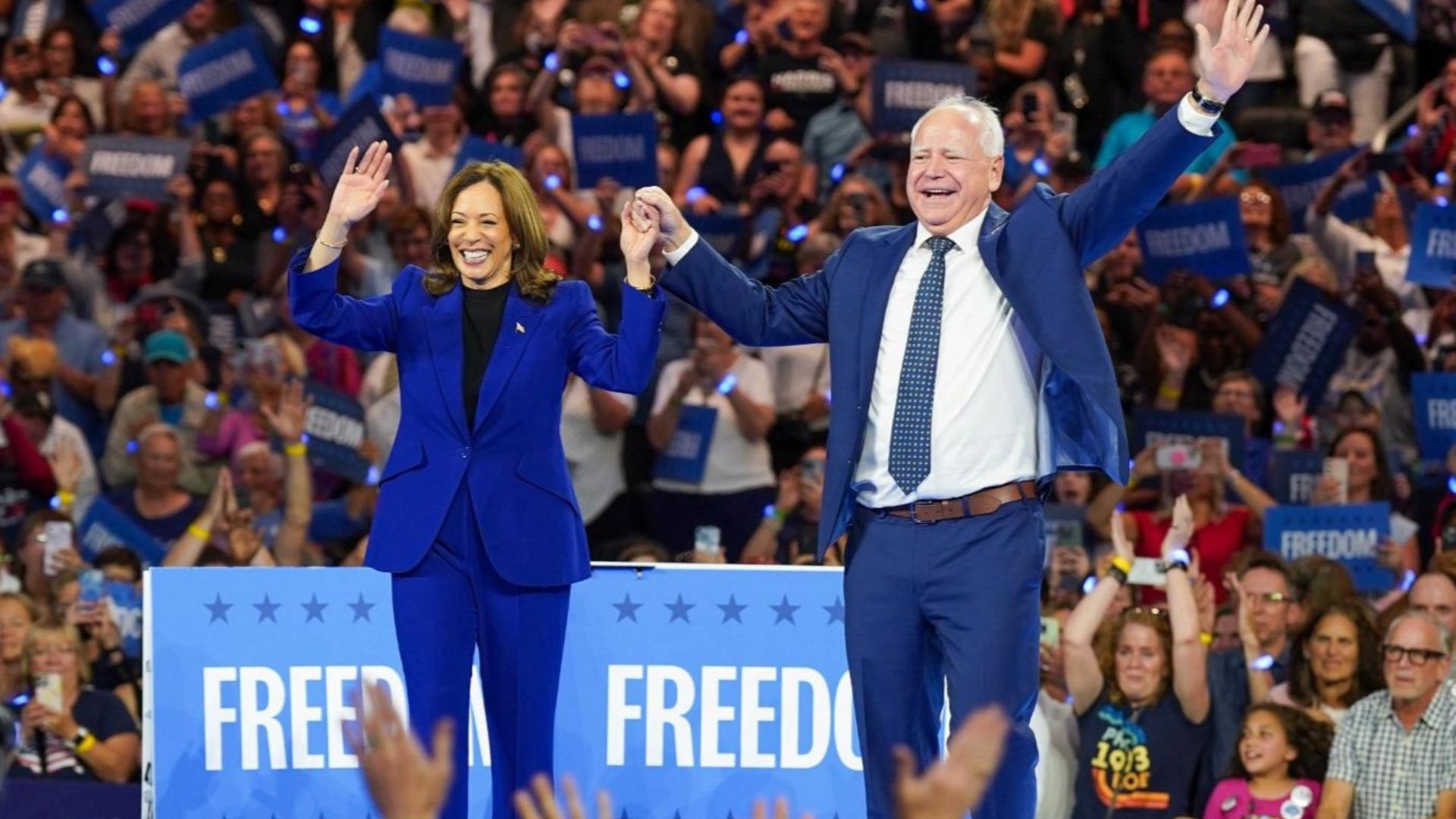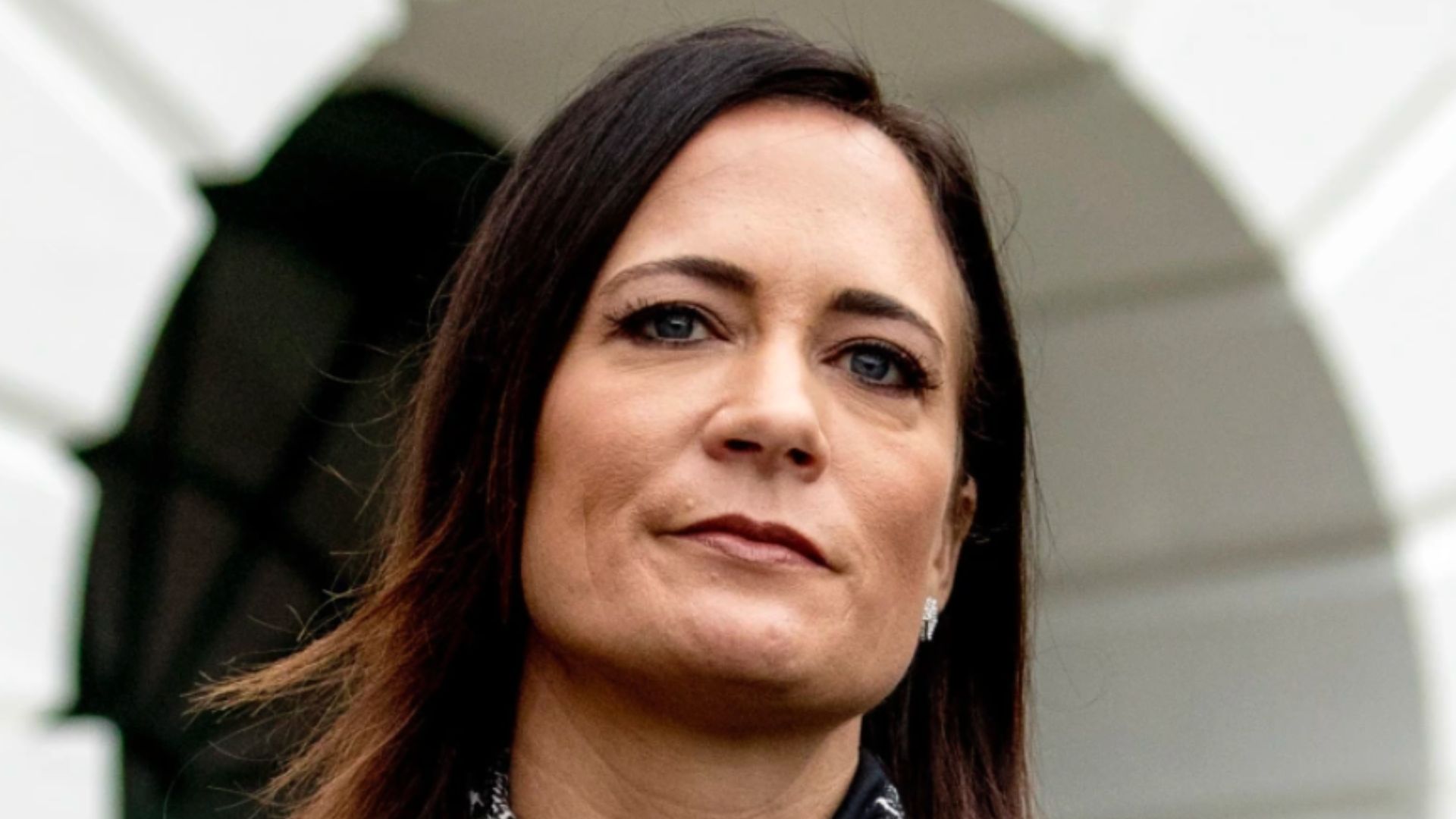During the Democratic National Convention, Stephanie Grisham shared the one-word text from Melania Trump that led her to resign.
It happened in the wake of the January 6 insurrection. This revelation came as Grisham explained her decision to leave her post, highlighting a significant turning point in her career and the administration’s history.
The Decisive Text Message

Grisham displayed the word “no” from Melania Trump on screens to the DNC audience.
This response came after Grisham had requested Melania to condemn the violence on January 6. This refusal was pivotal, influencing Grisham’s decision to resign from her role as she “couldn’t be part of the insanity any longer.”
Endorsement at the DNC

At the same event, Grisham endorsed Kamala Harris for president, signaling a strong political shift. She expressed her support by stating, “Kamala Harris tells the truth, she respects the American people and she has my vote.”
This endorsement was part of her appearance at the DNC, where she spoke against her former political affiliations.
Trump’s Lack of Empathy

Grisham shared insights into Trump’s behavior during a hospital visit, revealing his indifference to critical situations.
According to her, Trump was upset about not being the center of media attention, even as critical medical emergencies unfolded around him. This story was meant to illustrate his lack of empathy and concern for others during significant events.
A Pattern of Misinformation

Grisham quoted Donald Trump during her speech, highlighting his approach to truth and communication: “It doesn’t matter what you say, Stephanie, say it enough and people will believe you.”
This quote was used to emphasize her concerns about the misleading tactics employed during her tenure at the White House.
Speaking Out at the DNC

Having shifted her allegiance, Grisham spoke at the DNC to voice her concerns about Trump, whom she had once served.
She explained her presence at the DNC by saying, “After seeing firsthand who Donald Trump really is, and the threat he poses to our country, I feel very strongly about speaking out.”
A Bipartisan Effort Against Extremism

The Democratic National Convention featured several Republican figures, including Grisham, who spoke against what they described as the extremism of Donald Trump.
This inclusion of Republicans at a Democratic event illustrates a significant effort to bridge political divides in the face of perceived threats to democratic values.
Changing Political Ties

Grisham, a former Republican, announced her support for the Democratic candidate, reflecting a major shift in her political stance.
This change was rooted in her experiences and disillusionment with the previous administration, leading her to support what she saw as a more truthful and respectful leadership under Kamala Harris.
Expanding the Democratic Coalition

The Harris campaign has been actively seeking to include former Trump supporters and moderates who are looking for alternatives to Trump’s leadership style.
This strategy aims to create a more inclusive and broad political coalition ready to tackle national issues from a unified stance.
Unique Role as Press Secretary

Grisham was notable for being the first White House Press Secretary under Trump who did not hold any press conferences.
This aspect of her tenure was highlighted to demonstrate her unique position within the administration and her subsequent decision to leave and speak out against it.
Advocating Against Trump’s Return

After her resignation, Grisham became an outspoken critic of Donald Trump, warning of the consequences if he were re-elected.
Her criticisms were based on her experiences within the administration, where she observed behaviors and tactics that she later publicly denounced.
Republican Support for Harris

The “Republicans for Harris” initiative represents a strategic effort by the Harris campaign to attract Republicans disillusioned by Trump.
Grisham’s involvement in this initiative and her speech at the DNC are part of a larger effort to showcase bipartisan support for Harris’s candidacy, aiming to strengthen her position by drawing support across traditional party lines.
